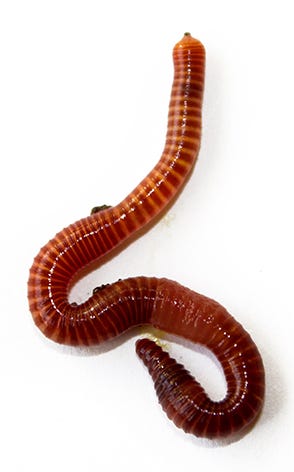Red worms: Great for enriching soil
Red worms: Great for enriching soil
Blog Article
Making Use Of Red Wigglers for Reliable Organic Waste Disposal
These worms not only boost waste decomposition however additionally yield important worm spreadings, which can significantly improve dirt health. Comprehending the subtleties of setting up a successful worm bin and keeping an optimal habitat is critical for maximizing their benefits.
Benefits of Utilizing Red Wigglers
Among one of the most engaging benefits of using red wigglers for organic waste disposal is their exceptional performance in composting. These worms, medically known as Eisenia fetida, are especially adapted for breaking down organic materials, enabling them to refine waste up to two times their body weight every day. This rapid decay not only speeds up the composting process however likewise creates nutrient-rich worm spreadings that significantly enhance soil quality.
Additionally, red wigglers add to a reduction in landfill waste. By diverting organic products from land fills, they aid decrease methane exhausts-- a powerful greenhouse gas. This environmental benefit is important in the fight against environment adjustment.
Additionally, red wigglers are low-maintenance and can prosper in numerous settings, making them obtainable for both amateur and knowledgeable composters. Their capability to recreate quickly ensures a stable population, promoting recurring waste processing.
Establishing Your Worm Container
Producing an effective worm bin is important for making best use of the benefits of composting with red wigglers. The initial step is choosing an appropriate container. A container constructed from plastic or timber, with a capacity of 10 to 20 gallons, is ideal. Make sure the bin has ample drain holes to prevent excess dampness, as red wigglers prosper in a damp however not soggy atmosphere.
(Charlotte Worm Farms)Next, prepare the bedding material, which offers as the worms' habitat and food resource. The container must be put in a dark, temperature-controlled area, preferably in between 55 ° F and 77 ° F, to preserve worm task.
When the bin is established up, introduce the red wigglers, permitting them to adapt to their new setting. A well-kept bin will certainly not only support the wellness of the worms but also facilitate effective decay of natural waste.
(Lenoir Worm Farms)
What to Feed Red Wigglers
An understanding of the appropriate diet for red wigglers is essential for keeping a healthy worm population and optimizing composting performance. These products not only supply crucial nutrients yet likewise contribute to the wetness balance within the worm bin.
It is essential to stay clear of certain foods that can damage the worm populace. Red wigglers need to not be fed meat, dairy items, oily foods, or processed products, as these can attract bugs and develop unpleasant odors. red wigglers. Furthermore, citrus fruits and hot foods must be lessened, as their level of acidity can be harmful to worms
To promote optimum food digestion, food ought to be chopped right into smaller sized pieces, facilitating quicker malfunction and usage. Presenting food in small amounts is additionally essential; overfeeding can cause anaerobic problems and attract undesirable pests. Monitoring the worm bin for food intake prices will help guarantee that red wigglers are getting an adequate diet while keeping an efficient composting environment. Correct feeding techniques are important for fostering a thriving community within the worm bin.
Maintaining Your Worm Environment
A well-kept worm environment is essential for the health and productivity of red wigglers. To guarantee ideal problems, it is critical to check temperature level, wetness, and aeration within the worm container. Red wigglers grow in a temperature variety of 55 to 77 degrees Fahrenheit. Surpassing this range can emphasize the worms, so it is necessary to place the container in an ideal place away from straight sunshine and extreme temperatures.
A good regulation of thumb is to maintain dampness at approximately 70% to 80%. If the bed linens becomes too damp, it can lead to anaerobic problems that are damaging to the worms.

Utilizing Worm Castings in Gardening
Rich in nutrients and helpful microorganisms, worm castings offer as an exceptional natural fertilizer for gardening. Produced through the gastrointestinal procedures of red wigglers, these castings have a selection of vital nutrients, including nitrogen, phosphorus, and potassium, which advertise durable plant development. Unlike synthetic fertilizers, worm browse around this web-site castings supply a slow-release system, guaranteeing that nutrients are offered to plants over an extensive period, thus decreasing the threat of nutrient leaching and dirt depletion.
Along with nutrient content, worm spreadings boost dirt structure and aeration, boosting dampness retention and drain. The microbial life existing in worm castings aids to subdue pathogens and advertises a healthy dirt environment, additional benefiting plant health and wellness. When integrated right into the dirt or made use of as a top dressing, worm castings can considerably boost seed germination rates, root advancement, and general plant vigor.
For optimal outcomes, garden enthusiasts need to apply worm castings at a rate of 1-2 inches per square foot, blending them into the dirt or integrating them right into potting mixes. On the whole, using worm spreadings is an environmentally friendly approach to enhancing dirt fertility and making sure thriving yard settings.
Final Thought

Report this page